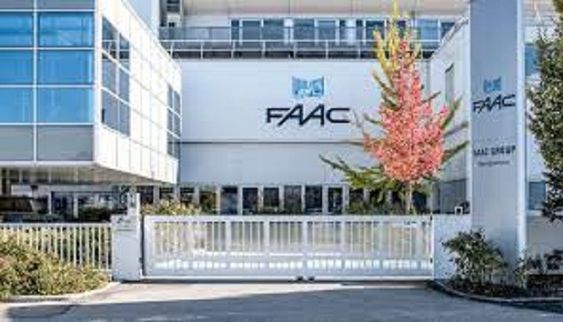Business
N1.8 trillion was generated from IGR by 36 states, while N5.72 trillion was earned from FAAC

Six states are insolvent, according to the Economic Confidential’s 7th Annual States Viability Index (ASVI), since their Internally Generated Revenues (IGR) in 2022 fell short of 10% of what they received from the Federation Account Allocations Committee (FAAC) in the same year.
The meticulously calculated index demonstrated that several states would continue to be unviable and unable to operate without the monthly payment from the Federation Account Allocation Committee (FAAC), which is primarily derived from oil profits.
Pay-As-You-Earn Tax (PAYE), Direct Assessment, Road Taxes, and Revenues from Ministries, Departments, and Agencies (MDAs) are how the states produce the IGR.
In 2022, the 36 member states of the federation had an IGR of N1.8 trillion, which was higher than N1.76 trillion in 2021.
According to a report released in Abuja on Monday by the intelligence magazine Economic Confidential, Lagos State’s IGR in 2022 was N651 billion.
This is bad in comparison to their allocations from the Federation Account and higher than the combined Internally Generated Revenues of thirty other States, all of which have extremely low revenue levels.
Lagos held onto its top spot in terms of IGR among the states, generating N651 billion in total income collection in 2022 compared to FAAC’s earnings of N370 billion, or 176 percent.
The report states that Ogun State produced an IGR of N120 billion, or 106 percent, more than its FAAC revenues of N113 billion. Rivers followed suit, generating N172 billion IGR compared to N363 billion, or 48 percent, more FAAC earnings.
Oyo State earned N62 billion compared to FAAC earnings of N181 billion, or 37%; Edo generated N47 billion IGR compared to FAAC earnings of N147 billion, or 32%; Kaduna State generated N58 billion compared to FAAC earnings of N155 billion, or 37%; Kwara had IGR of N35 billion compared to FAAC earnings of N99 billion, or 36%.
According to the analysis, in 2022, the seven most viable states created a total of N1.15 trillion in internal revenue, which was about twice as much as the combined revenue of the 29 remaining states, which only generated around N650 billion.
Some states with impressive IGRs are Nasarawa State, which earned N19 billion, while FAAC earned N92 billion, accounting for 21%; Ondo, which earned N32 billion, compared to FAAC’s N135 billion; Anambra, which earned N33 billion, compared to FAAC’s N127 billion, representing 27%; and Enugu, which earned N28 billion, compared to FAAC’s N111 billion, representing 26%.
Delta State produced N85 billion in internal growth relative to its FAAC earnings of N428 billion, or 20 percent, and Osun State produced N24 billion relative to its FAAC earnings of N122 billion, or 20 percent.
Managing Editor of Economic Confidential Abdulrahman Abdulraheem provided additional context by stating, “According to the report, the 23 states produced a total of N426 billion in 2022, while the six states with impressive IGR generated N225 billion in total.”
The report offers a remarkable finding. While some states saw increases in their IGR over the prior year, others saw declines. Six states produced less than 10% IGR in 2022 as opposed to two in 2021.
Adamawa barely missed out, making N13.1 billion in 2022 compared to FAAC earnings of N116, or 11.29 percent, less than 2 percent above its 13 percent the previous year.
The home states of former Presidents Goodluck Jonathan, Muhammadu Buhari, and Godswill Akpabio, the current Senate President, respectively, are Bayelsa, Katsina, and Akwa Ibom. These six states may not be able to survive without the Federation Account due to their extremely low internal revenue generation of less than 10 percent compared to their federal allocations.
States of Taraba, Yobe, and Kebbi are the others.
Only three states in the entire Northern area have IGRs above 20 percent as compared to their respective Federation Account allocations, according to the Economic Confidential ASVI. The states in that order are Kaduna, Kwara, and Nasarawa.
According to Abdulrahman Abdulraheem, Managing Editor of Economic Confidential, eight Southern states have IGRs of more than 20% in 2022. Lagos, Ogun, Rivers, Oyo, Edo, Anambra, Enugu, and Ondo are among them.
The only states in the South with the lowest Internally Generated Revenue—less than 10% of its FAA in 2022—are oil-producing Bayelsa and Akwa Ibom.
“Yobe and Taraba in the north-east, and Katsina and Kebbi in the north-west are the other poorest IGR states.”
Instead of depending exclusively on the monthly Federation Account earnings, which are mostly derived from the oil sector, the IGR of the individual states can be increased in the interim by aggressively diversifying their economies into productive industries.
Without the monthly payments from the Federation Account, the poorer states with lower IGR might not be able to survive because of a lack of efforts for income generation and armchair governance.
Due to sociopolitical and economic challenges including insurgency, abduction, armed banditry, and conflicts between ranchers and farmers, certain states are unable to draw in investors.
